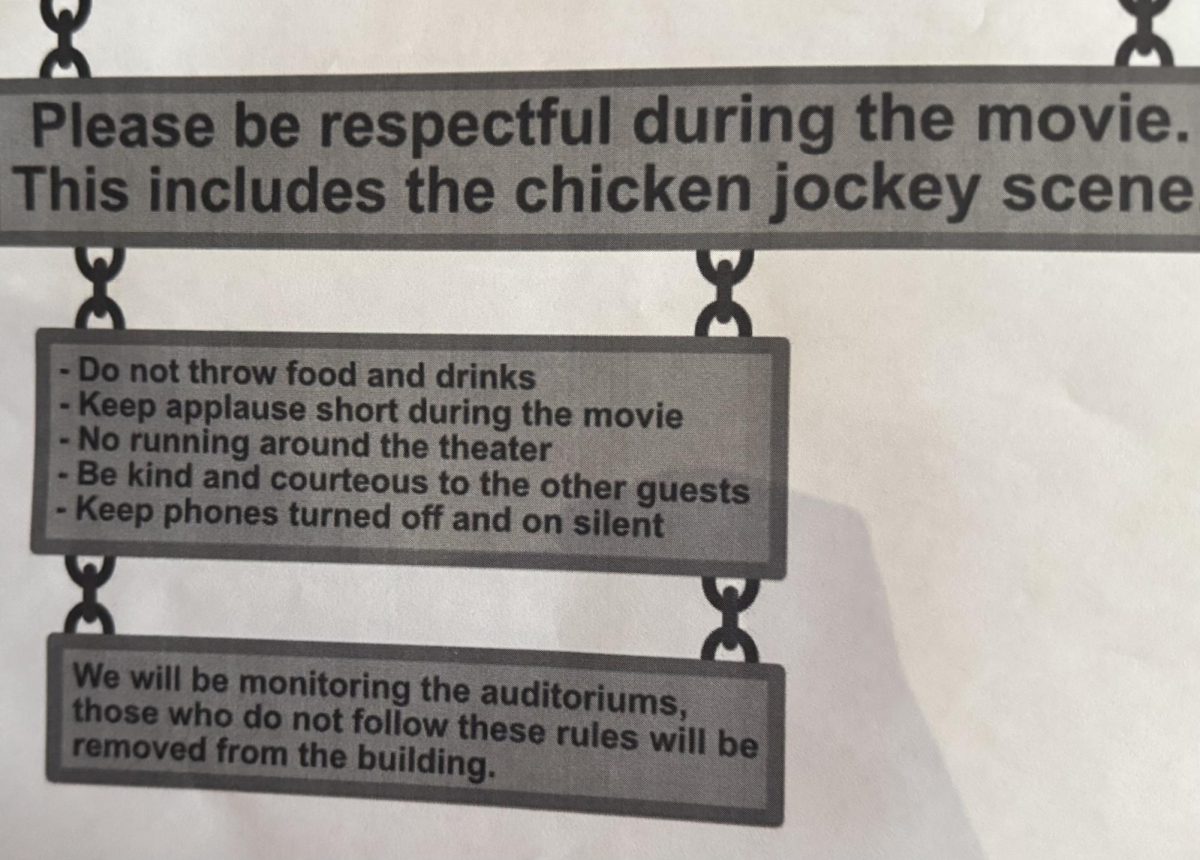In last week’s op-ed piece “Transgender-inclusive Changes at Mac,” Oliver Schminkey ’16 (they/them/theirs), Grey Myers ’17 (ze/zir/zirs) and Amy McMeeking ’15 (she/her/hers) discussed Macalester transgender activism of the last year. About recent trainings to support future transgender international students they wrote, “In the coming years, we hope that Mac can be a place where transgender students across cultures can find a welcoming and supportive environment.” It is important to support our international students, but I wonder at where the limits of “across cultures” imagined by the writers exist. Because as far as I know, never once in the more recent student transgender activism has there been a concerted, earnest, worthwhile engagement with domestic transgender people of color on campus. Though few we may be (which can be said about the transgender white population as well), we exist. We are known. Our voices matter. Our actions contribute.
Our exclusion, then, is an act of white supremacy.
I am not unaware of how small the community is. To speak out about the racism in the transgender white community and their cisgender white supporters will feel like an individualized attack. I, however, do not concern myself with white people’s reputations; up to this point they have complacently relied on the structures that shame people of color when we name our white oppressors, speak to our oppressions and fight injustice with intersectional approaches. I understand that this may not have been their intention, but the end result is the same: people of color (both trans- and cisgender) have been largely excluded, transgender activism has been performed on our behalf without our input and there have still not been serious attempts to truly correct these issues. White people should be made accountable to the Macalester campus about the ways their actions support the exclusion of people of color’s voices in the past and present, which is why I write this piece.
Regarding specific exclusions, I can speak only to my own experiences, but I do so in the hope that they will resonate with other Macalester transgender people of color. And so, speaking from my experience, the “Transgender-inclusive Changes” piece reads as a collection of actions that do not represent me. Yes, I benefit from them, but my full needs could never have been met if I was never asked to contribute. The closest I got to a conversation with the white transgender community and their white cisgender allies was through the MCSG resolution, one keystone to the student activism of last year. A draft of the resolution was shared with me, and I was asked for input. But this email was sent only seven hours before the resolution was to be presented. There would have not been enough time to change anything substantial, so I felt disrespected because my time, energy, and suggestions could not be valued within the time frame given. I cling to this event as at least an attempt to engage with me, and I still think very kindly of the person who sent me the email and their intentions. But, the exchange was not enough to pacify my loneliness and was indicative of a larger exclusion.
There are times I blame myself for my exclusion or the exclusion of transgender people of color in general. I knew how white the campaigns and committees for transgender inclusivity were, and I scolded myself for waiting for an individualized invitation or a general call to transgender people of color. But when writer and transgender rights activist Janet Mock came to campus last year, I found it ridiculous, confusing and humiliating that asking Mock about how to include transgender people of color seemed like the safer, easier, better choice than finding and asking me. (She is amazing, but she understandably cannot speak to our campus’s specific needs.)
But when I push back my shame, I remember that I should not have to always be the one to make room for myself as a person of color. I do that enough throughout Macalester; I am exhausted by the process of fighting to have my position as a Latin@ person of color respected by the white-majority campus. The transgender white community and their cisgender white allies, on the other hand, have white privilege. They must have made very conscious decisions for it to get to this point, or at the very least, they have not been asking the questions necessary to acknowledge the way people of color have different needs. Even if it is unintentional, they are the agitators in this situation as perpetrators of white supremacy, and they should be amongst the initiators of change, not just me.
For so long, I refused to fight for my space in the transgender community on campus. This resolution has brought me power, self-love and affirmation, but also isolation, anger, self-doubt and an obsessive questioning of my right to claim my position as a transgender person. I resolved to be bitter and resentful and resistant through silence going into my senior year, and it was working out decently. But seeing last week’s op-ed broke my resolution because it did not think to feature the transgender-inclusive change last year that has most impacted me. This change was the transition of the Latin American Women of the Diaspora Collective (LAWD) to its current iteration, Latin American Women and Nonbinary Folk of the Diaspora Collective (LAWN’D).
The story of this change begins two years ago. While I was never “closeted” on campus, I slowly became more public as genderqueer during my sophomore year. I am a private person and consider my gender private, so it was a difficult process to assert myself as a femme transgender person who kept being read as a cisgender woman. What made it even harder was that I hungered for community to talk about my experience at the intersection of race and gender, but could never make the Queer People of Color Collective meetings. I was tempted by repeated invitations to LAWD as well as the Women of Color and Queer Women Identity Collectives. (Collectives, for those of you unaware, are excellent, supportive spaces for identity exploration, and you must self-identify with the group to join.) I so badly wanted to enter these spaces, but I ultimately decided that I did not want to undermine these valuable, powerful spaces for women by entering them without self-identifying.
Then an amazing thing happened at the end of sophomore year. The new facilitators of the LAWD approached me and asked how the collective can better support me and other nonbinary Latin@ people. We sat down, decided on the new name, and spoke about the implications of solidarity between Latin@ women and nonbinary people. I was made co-facilitator to help the community grow into this change, and grow the community did. LAWN’D’s discussions last year were poignant, dynamic and sensitive to the way gender-based oppression affected us all differently yet similarly at once. And, most importantly for me, I finally had a loving community who gave me a place for my racialized gender and gendered race that I was so lacking before. While the expansion of community impacted me as an individual, this change is also about inclusivity for a wider transgender (specifically nonbinary) audience. I firmly believe in the self-determinacy of the collectives, and given the nature of how communities form within them, it would be absolutely inappropriate of me to demand communities I am not at all a part of to change when that is not what they need. But, I like to think LAWN’D can act as one model of a community changing its boundaries to unite women and nonbinary folk across difference.
Seeing this vital transgender-inclusive change go unrecognized by Schminkey, Myers and McMeeking last week felt like my community was being forgotten, ignored and undervalued. Does our work as Latin@ women and nonbinary people not count because by its very nature this change does not include transgender white people? That the writers did not think to include LAWN’D or just didn’t know illustrates to me a lack of care, support and knowledge of the needs of transgender people of color on campus. But the problem does not end with this single exclusion. For example, there has also been a noticeable, intentional increase in transgender people, especially those of color, in every facet of programming on campus: from Lealtad-Suzuki Center’s SPEAK! series to Scots Pride Alumni-Student Mixer to even student org programming, as seen in one case when elisa lee ’15 (elisa/elisa’s) on behalf of FIA*STARA brought to campus B. QullecTivE, a local organization for queer and trans people of color in Minnesota, for Transgender Remembrance Day. And this is not even the comprehensive list of speakers, nor can I offer an exhaustive list of changes made outside of just the amount of speakers.
By conceptualizing the transgender-inclusive changes as a few institutional actions over the course of a single year, I believe Schminkey, Myers and McMeeking undervalued the work performed by not only transgender people of color, but by all white transgender people and by cisgender allies of any race. As taught to us for decades by Black womanists and women of color feminists, to truly change our society we need an approach that holistically addresses oppression on every level and in every community through a focus on those most marginalized at the intersections of oppressions. Changes small and large must be valued and remembered and honored. When we do not conceptualize change intersectionally, when we try to fashion narratives of an exceptional few activists and their actions, we disrespect the triumphs we make as a community and perpetuate uncritical notions of success, top-down progress and singular “heroes” of change.
Nothing done by the white transgender community has been enough to support me as a transgender person of color. I, however, would not bother writing this all for a public audience if I wanted it to stay this way. As I’ve written about in my Bringing Sexy Mac column for the last two years, I believe in a loving process of acknowledging each other’s worthiness. This process includes the necessary vulnerability of sharing when you have been hurt—as I have done through this piece—and also the belief that others have the capacity to change. Because together, all of the recent transgender activism across the campus has lead to amazing changes that support us all. What I still need, however, is a true concerted, earnest, worthwhile inclusion of people of color, our needs and our contributions into this budding activism. I think it is possible to make these changes. I just need you, white transgender people and white cisgender allies, to do better right now.
Ariel Estrella (they, their, theirs)
Raynise Cange (they, their, theirs)







Felicity Roberts • Sep 8, 2019 at 12:34 am
Precisely what I was searching for, thanks for putting up.
FashionNova 2019 • Jul 31, 2019 at 4:57 pm
Way cold! Some very valid points! I appreciate you making this write-up and all of those other website is great also.
LongwoodGardencodes • Jul 30, 2019 at 4:15 pm
Excellent info and straight to the true point. I don at know if this is truly where to consult but do you folks have any ideea where you might get some pro consultants? Thanks in advance
NativeDeodorant coupon • Jul 30, 2019 at 8:41 am
Good post Brian the method that you covered all of the strategies for webmasters.
PeterPiperPizzadiscountcode • Jul 30, 2019 at 4:22 am
Excellent post Brian how you covered all the techniques for website owners.
SKy-Zone-Coupon • Jul 29, 2019 at 5:36 pm
Thanks for revealing the brilliant post. You described the link developing methods incredibly.